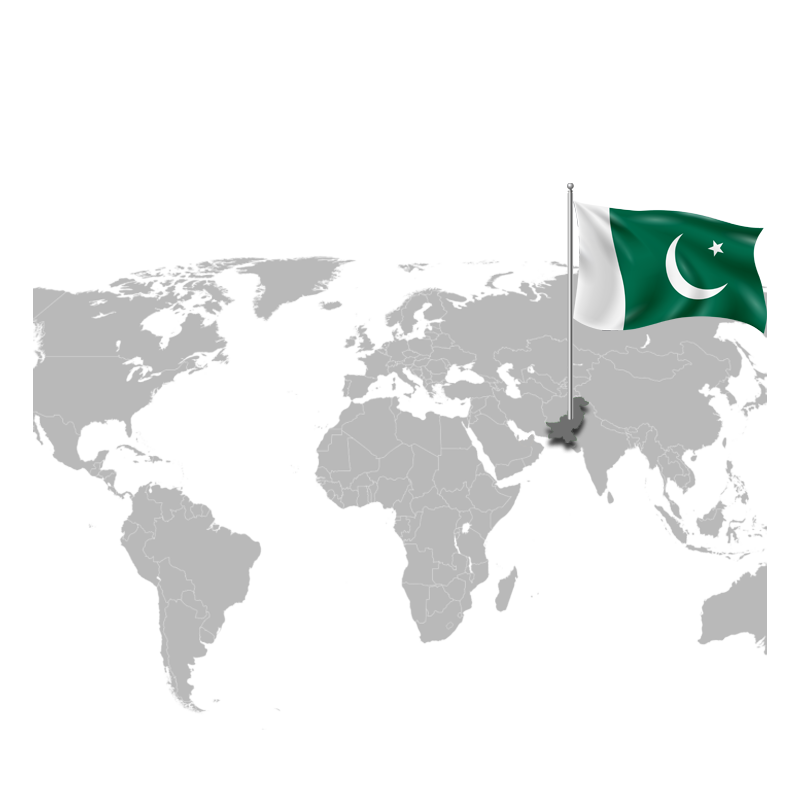FACiLaw
- December 24, 2022
We represent clients from all around the world in Pakistan every year. We see the globe as having no borders and are unafraid of language hurdles or time zones.



Please give a brief description about what it is you need to talk to our lawyers about ?
Over the past two decades, Pakistan has achieved significant poverty reduction, but human development outcomes have lagged while economic growth has remained volatile and slow. Expansion of off-farm economic opportunities, and the increase in migration and associated remittances allowed over 47 million Pakistanis to escape poverty between 2001 and 2018. Despite rapid poverty reduction, human capital outcomes have remained poor and stagnant, with high levels of stunting at 38 percent and learning poverty at 75 percent. Reflecting a growth model based on private and government consumption, with productivity-enhancing investment and exports contributing relatively limited, Pakistan has experienced frequent macroeconomic crises. Growth of per capita gross domestic product (GDP) has been low, averaging only around 2.1 percent annually over 2000-18. The COVID-19 pandemic has also had serious impacts on human development outcomes and economic growth.

In early FY23, Pakistan’s economy was undergoing an overdue adjustment, as it recovered from the impacts of COVID-19. Supported by accommodative macroeconomic policies, the economy expanded by 6.0 percent in FY22. Strong domestic demand, coupled with low productivity growth, high world commodity prices, and the global economic slowdown contributed to severe external imbalances. To stabilize the economy, the Government began implementing a range of policies to constrain aggregate demand, including a contractionary budget and increases in administered energy prices. As a result of stabilization measures, growth was expected to slow, the exchange rate was expected to stabilize, total public debt was expected to decline gradually from current high levels, while foreign exchange reserves were expected to slowly accumulate.
Recent floods have had enormous human and economic impacts. Pakistan has been experiencing heavy monsoon rains since June 2022 leading to catastrophic and unprecedented flooding. Almost 15% of the country is underwater and just over 33 million people are affected. More than 2 million houses have been damaged or destroyed. Loss of life has also been considerable with 1,700 fatalities reported to date. Loss of livestock is also significant with more than 1.1 million animals estimated to have perished, while over 25,000 animal shelters have been damaged. More than 13,000 km of roads are reported to have been affected and 440 bridges have been damaged or destroyed, with these numbers expected to rise. Economic impacts are concentrated in the agricultural sector, with over 9.4 million acres of cultivated land destroyed, resulting in significant losses to cotton, date, wheat, and rice crops. Lower agriculture output is expected to negatively impact industrial and services sector activity, especially given textile sector reliance on cotton (textiles account for around 25 percent of industrial output). Flooding will impose a lingering drag on output through infrastructure damage, disruption to crop cycles, possible financial sector impacts (microfinance institutions report major solvency problems), and loss of human capital. Preliminary estimates suggest that as a direct consequence of the flood, the national poverty rate will increase by 2.5 to 4.0 percentage points, pushing between 5.8 and 9.0 million people into poverty.
The economic impacts of flooding is likely to delay much-needed economic adjustment. Growth is now expected to reach only around 2 percent in FY23. Due to higher energy prices, the weaker Rupee, and flood-related disruptions to agricultural production, inflation is projected to rise to around 23 percent in FY23. With disruptions to exports (especially textiles) and higher import needs (food and cotton), the current account deficit is expected to narrow only slightly to around 4.3 percent of GDP in FY23 (from 4.6 percent in FY22). The fiscal deficit (including grants) is projected to narrow only modestly to around 6.9 percent of GDP in FY23 (relative to a budgeted deficit of 4.7 percent), reflecting both negative revenue impacts from flooding and increased expenditure needs.
The Government faces a difficult policy challenge in supporting relief and recovery while maintaining progress towards macroeconomic stabilization. Significant downside risks include: i) unexpected damages from the floods as on-the-ground damage assessments continue ii) political instability which may undermine a coherent and timely policy response; iii) worsening external conditions, including unforeseen increases in global commodity prices and interest rates; and iv) risks associated with large domestic and external financing needs, especially in the context banking sector liquidity constraints. To manage these risks, it will be critical to adhere to sound overall economic management and buttress market sentiment, including through articulating and effectively implementing a clear strategy for economic recovery; constraining fiscal expenditures to the extent possible and carefully targeting any new expenditures; maintaining a tight monetary stance and flexible exchange rate; and remaining on-track with critical structural reforms, including in the energy sector.

Pakistan’s general rule of law score decreased by less than 1% in 2022’s Index. At 129th place out of 140 countries and jurisdictions worldwide, Pakistan’s rank decreased by 12 in the global rank in comparison to 2019 (117).
According to World Justice Project Approximately 82% of people surveyed experienced at least one legal problem in the last two years. 27% Were able to access help and 48% Experienced hardship in resolving their legal issue.
While the prevalence and severity of problems vary in Pakistan, the most common problems relate to the community, public services and consumer. Also Less than %27 of people in Pakistan who experienced a legal problem sought any form of advice to help them better understand or resolve their problem, and those who did seek assistance preferred to turn to family members or friends (%60).

The majority of labour do not have proper contracts. Women face harassment at workplaces and are not given maternity leave. There is also ‘unfree labour’ in Pakistan in the form of bonded workers who are estimated to be around two million, particularly in the brick kiln and agriculture sectors
Marriage can be dissolved in any of the given ways i.e. divorce by the husband at his will without the intervention of a court commonly called a “Talaq”; by mutual consent of the husband and wife, without intervention of the court; by a judicial decree at the instance of the court and by the wife in exercise of a contractual right of divorce.
The party filing the suit is called the “Plaintiff”, while the other party to the divorce proceedings is referred to as the “Defendant”
Relevant laws are Companies Ordinance, 1984, Companies (General Provisions and Forms) Rules, 1985, Single Member Companies Rules, 2003 and Code of Corporate Governance for limited companies.
Tattima means “supplementary” and Tattima Registry means supplementary sale deed in specified area.
You can obtain your house documents or title deed documents from office/department by which title of the house was conferred or transferred.
Before purchasing property from a company you should verify from the Registrar of Companies at Securities & Exchange Commission of Pakistan that the property is not mortgaged or is not being used as a security against a loan, otherwise it will not be considered as a freehold property. In addition, check memorandum of association that who is authorized to act on behalf of company for selling the property, if resolution is required then the same must be passed and verified. Further, inspect original title documents from the selling company.
Transfer in the case of immovable property of the value of Rs 100/- and upwards only be made by a registered sale deed.
For getting possession of money in the bank, shares, insurance amount, stocks, bonds etc, a succession certificate is required under Succession Act, 1925.
It depends from case to case; however, estimated time for getting succession certificate in case of no opposition from public is between two to three months.
According to Companies Ordinance, 1984 private company means a company, which, by its articles, restricts the right to transfer its shares, if any. Limits the number of its members to fifty not including persons who are in the employment of the company and prohibits any invitation to the public to subscribe for the shares, if any, or debentures of the company.